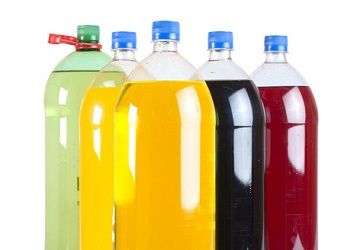WHO Urges Higher Global Taxes on Sugary Drinks
To combat exponentially rising rates of tooth decay, obesity, and diabetes, the World Health Organization (WHO) is urging governments across the world to consider placing heavier taxes on sugary drinks like soda.

To combat exponentially rising rates of tooth decay, obesity, and diabetes, the World Health Organization (WHO) is urging governments across the world to consider placing heavier taxes on sugary drinks like soda.
According to statements from Dr. Douglas Bettcher in a news release provided by the WHO, the “consumption of free sugars, including products like sugary drinks, is a major factor in the global increase of people suffering from obesity and diabetes.” Free sugars refer to monosaccharides like glucose and fructose. The term also refers to disaccharides, like table sugar, that are added to foods and drinks. They also include natural sugars like those present in honey and fruit juices.
Worldwide, rates of obesity have more than doubled since 1980—in 2014, more than 600 million adults globally were classified as obese. The WHO defines obesity as a body mass index (BMI) of greater than or equal to 30, while overweight is defined as a BMI of 25 or greater. According to a WHO fact sheet on obesity, most of the world’s population live in countries where being overweight or obese was more likely to be a cause of death than being underweight. Also, the WHO noted that 41 million children under 5 years old were overweight or obese in 2014.
Previous information published by the WHO states that sugar is not a necessary part of anyone’s diet. The WHO recommends that free sugar intake should be kept below 10% of a person’s total daily energy needs. Consumption should be reduced to less than 5% for additional health benefits.
The news release notes that a 20% increase in the retail price of sugary drinks, accomplished through increased taxation, would result in dramatically reduced consumption of these types of products. The WHO says that countries should use increased taxation to target foods and drinks that have healthier alternatives.
Some countries have already taken action against unhealthy foods and drinks. For example, Mexico has already implemented a tax on non-alcoholic drinks that contain added sugar, and Hungary has implemented a tax on prepackaged products containing high levels of sugar, caffeine, or salt. Several other countries have already announced plans to increase taxation on sugary drinks, including South Africa, the Philippines, Great Britain, and Northern Ireland.
ACTIVA BioACTIVE Bulk Flow Marks Pulpdent’s First Major Product Release in 4 Years
December 12th 2024Next-generation bulk-fill dental restorative raises the standard of care for bulk-fill procedures by providing natural remineralization support, while also overcoming current bulk-fill limitations.